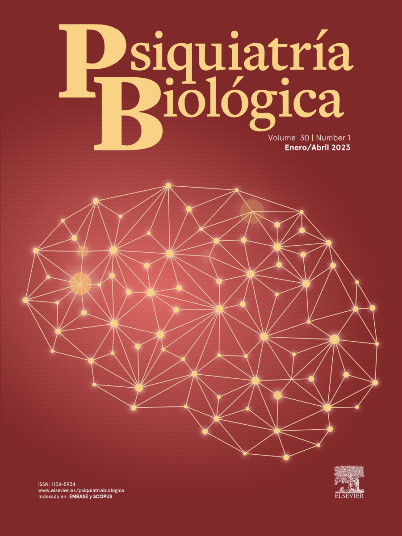Cuestionar que la terapia electroconvulsiva (TEC) sea perjudicial a nivel cognitivo a medio y largo plazo en el trastorno depresivo recurrente.
Caso clínicoSe presenta el caso de una mujer de 75 años con trastorno depresivo recurrente, resistente e intolerante a varios psicofármacos, descartada previamente para TEC por sospecha de deterioro cognitivo, pero incluida en junio de 2016 en el programa de TEC de mantenimiento (TEC-M), tras 10 sesiones de TEC aguda.
ResultadosTras más de 30 sesiones de TEC-M la paciente se mantiene eutímica, recibiendo una sesión trimestral de TEC y mostrando recuperación de la disfunción cognitiva tanto en la valoración subjetiva como mediante test de screening.
ConclusionesLa TEC-M es eficaz en ancianos con depresión y puede mejorar e incluso normalizar la función cognitiva.
Challenge the idea that electroconvulsive therapy (ECT) is cognitively detrimental in the medium and long term in recurrent depressive disorder.
Clinical caseWe introduce the case of a 75-year-old woman with recurrent major depressive disorder, resistant and intolerant to various antidepressant drugs, previously ruled out for ECT due to suspected cognitive decline, but included in June 2016 in the maintenance-electroconvulsive therapy (M-ECT program), after 10 sessions of acute ECT.
OutcomesAfter more than 30 sessions of M-ECT, the patient remains euthymic, receiving a quarterly session of ECT and showing recovery from cognitive dysfunction both in the subjective assessment and through the screening test.
Main findingsM-ECT is effective in the elderly with major depression, and may improve and even normalize cognitive function.





